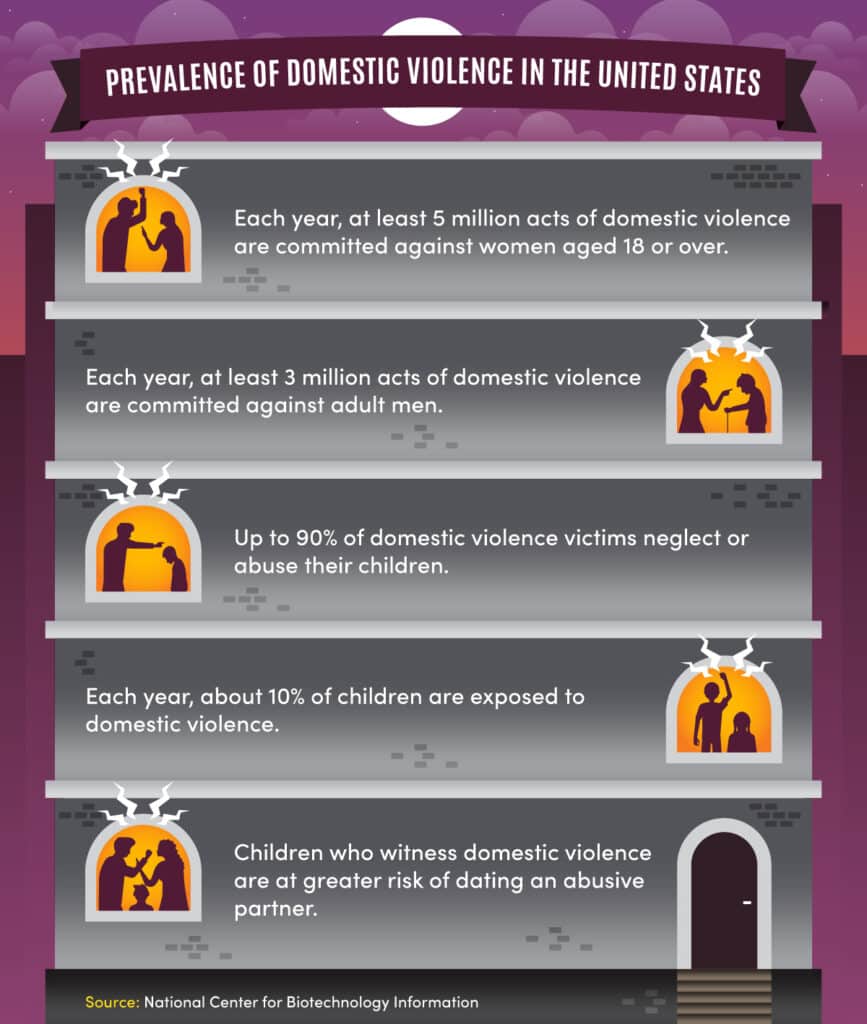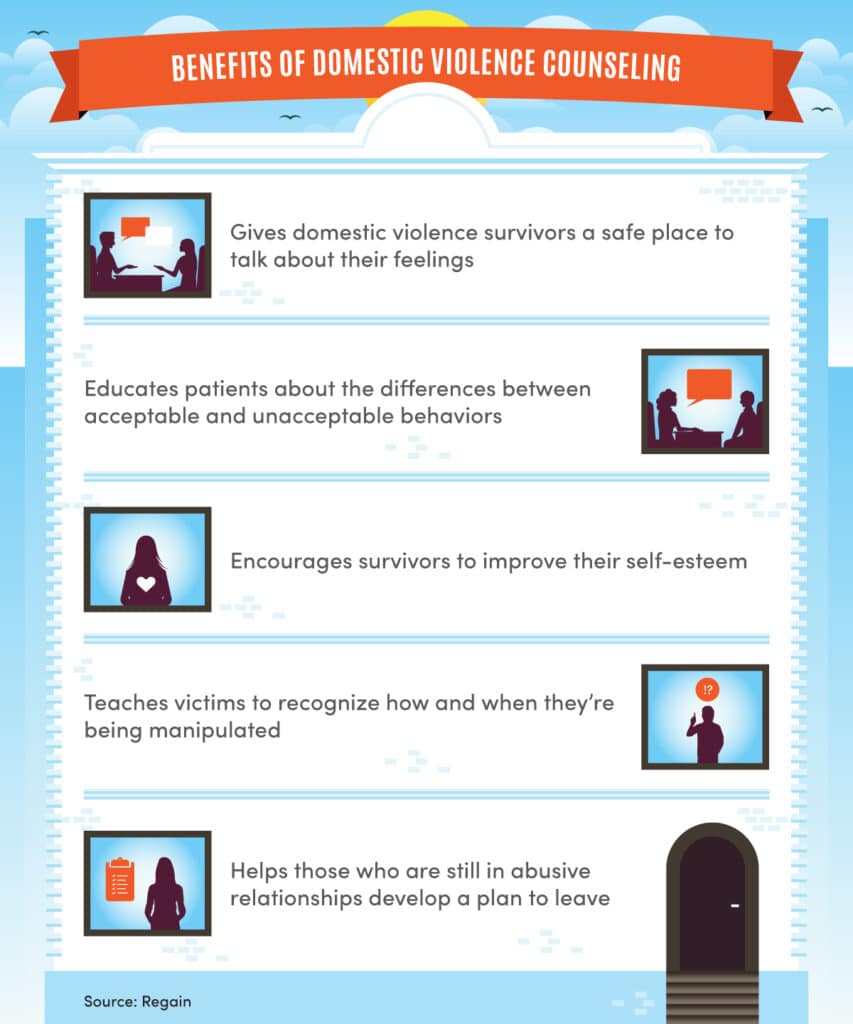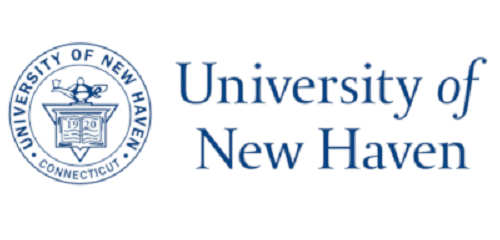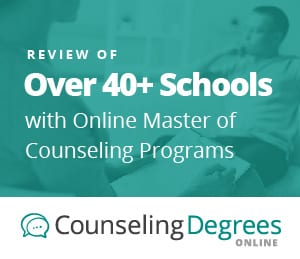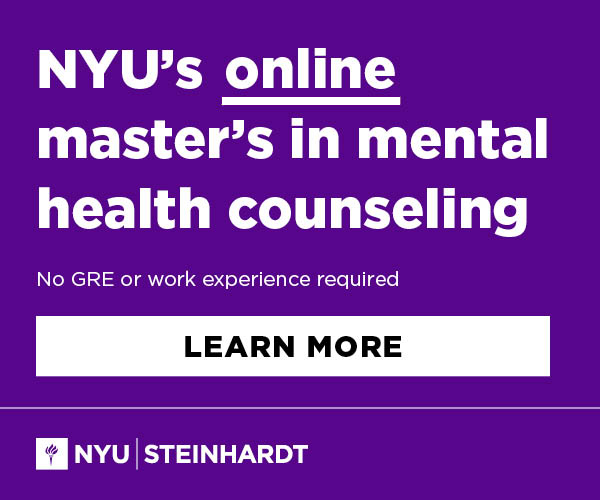 Walden University : MS in School Counseling (CACREP Accredited)
Walden University : MS in School Counseling (CACREP Accredited) Walden University : MS in Clinical Mental Health Counseling (CACREP Accredited, six specializations to choose from)
Walden University : MS in Clinical Mental Health Counseling (CACREP Accredited, six specializations to choose from)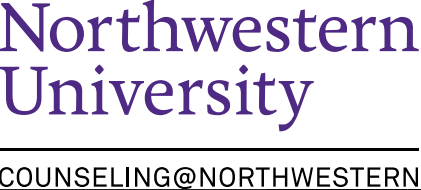 Northwestern University : Online MA in Counseling (CACREP Accredited)
Northwestern University : Online MA in Counseling (CACREP Accredited)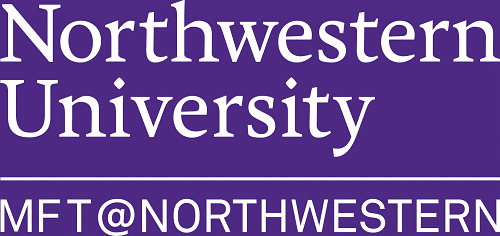 Northwestern University : Master of Science in Marriage and Family Therapy (Complete your COAMFTE-accredited MFT online program in as few as 21 months. No GRE required.)
Northwestern University : Master of Science in Marriage and Family Therapy (Complete your COAMFTE-accredited MFT online program in as few as 21 months. No GRE required.) Grand Canyon University : Master's Degree in Counseling (As a private university, GCU has the same in-state and out-of-state tuition.)
Grand Canyon University : Master's Degree in Counseling (As a private university, GCU has the same in-state and out-of-state tuition.) Liberty University : MA: Clinical Mental Health Counseling (CACREP Accredited) (Online with required intensives)
Liberty University : MA: Clinical Mental Health Counseling (CACREP Accredited) (Online with required intensives) University of Denver : Master of Arts in School Counseling (No GRE required)
University of Denver : Master of Arts in School Counseling (No GRE required) The Chicago School : M.A. in Clinical Mental Health Counseling (Online Programs. CACREP Accredited.)
The Chicago School : M.A. in Clinical Mental Health Counseling (Online Programs. CACREP Accredited.) Mid-America Christian University (MACU) : Master of Science (MS) in Counseling (100% Online, No GRE Required)
Mid-America Christian University (MACU) : Master of Science (MS) in Counseling (100% Online, No GRE Required)The online Master of Counseling can provide you with the skills you need to assess your clients and determine their level of need. The most prominent route to becoming a counselor in this field is through online masters programs focused on general counseling.
A Master's of Counseling with a Specialization in Domestic Violence Counseling can provide you with an understanding of he field of counseling, as well as access to different techniques and assessment methods to use in the field. Domestic violence counselors should also consider receiving certification within their specialized area in order to learn more about what is required to work with clients that have been affected by domestic violence.
Find a Program Focused on Domestic Violence Coursework
Certificate programs focusing on domestic violence, trauma, and relationship health could be great additions to your online Masters in Counseling program.
Each of these areas can give you a little more insight into what types of therapies and methods are most useful with clients with these needs, especially those that are working towards repairing relationships that have been torn apart by family violence.
As you read more into this guide, you can see more information about the steps you can take to successfully become licensed and certified to work in this area of counseling.
Consider a Featured Online Counseling Program
| School and Program Information | Online Program? Entry Requirements |
Course Information |
|---|---|---|
| Walden University
MS in School Counseling
 CACREP Accredited CACREP Accredited |
✔ Online
GRE scores not required |
School counselors help students overcome obstacles and shape successful futures. Walden’s online MS in School Counseling program will give you a solid foundation in school counseling theories, approaches, and best practices while enabling you to gain hands-on experience. Learn More |
| Walden University
MS in Clinical Mental Health Counseling
 CACREP Accredited CACREP Accredited |
✔ Online
GRE scores not required |
Mental health counselors play a valuable role in helping people cope with life’s challenges. Walden’s online MS in Clinical Mental Health Counseling program can help you become the competent, compassionate counselor you know you can be. Learn More |
| Northwestern University
Online MA in Counseling
 CACREP Accredited CACREP Accredited |
✔ Online
GRE Not Required Bachelor's Required |
Prepare to pursue licensure in as few as 18 months Learn MoreFull-time, part-time, and accelerated track options available |
| Northwestern University
Master of Science in Marriage and Family Therapy
COAMFTE Accredited |
✔ Online
GRE Not Required Bachelor's Required |
The COAMFTE-accredited MFT@Northwestern is offered by The Family Institute at Northwestern University. Full-time students can complete the program in as few as 21 months. No GRE is required, but applicants must hold an undergraduate degree. Full and part-time tracks available. Learn More |
| Grand Canyon University
Master's Degree in Counseling
HLC and NASAC Accredited |
✔ Online
|
Clinical Mental Health Counseling master's degree emphases include: Childhood and Adolescence Disorders, Christian Counseling, Marriage and Family Therapy, and Trauma. Designed to meet the academic requirements of the National Board for Certified Counselors for the National Certified Counselor credential, the Certified Clinical Mental Health Counselor credential and the Arizona Board of Behavioral Health Examiners. As a private university, GCU has the same in-state and out-of-state tuition. Learn More |
| Liberty University
MA: Clinical Mental Health Counseling (CACREP Accredited)
 CACREP Accredited CACREP Accredited |
✔ Online
Online with required intensives |
Our CACREP-accredited master’s in counseling degree online can help you become an ethical, well-trained mental health counselor with the knowledge, values, and skills you need to empower others to make positive changes in their lives. Online and on campus. Training Champions for Christ since 1971. Learn More |
| University of Denver
Master of Arts in School Counseling
Designed to adhere to CACREP standards |
✔ Online
No GRE Required; Minimum GPA 2.5 Required |
Earn a Master’s degree in School Counseling online from the University of Denver. Learn from doctoral-level faculty in live classes and gain experience through mock counseling and in-field training. No GRE required. Complete in as few as 24 months. Learn More |
| The Chicago School
M.A. in Clinical Mental Health Counseling
 CACREP Accredited CACREP Accredited |
✔ Online
Bachelor's Degree Required. |
This online CMHC program prepares students for a career offering mental health services in a variety of settings; helping diverse clients through issues such as depression, anxiety, grief, low self-esteem, stress, relationship difficulties, and suicidal impulses. Learn More |
| Mid-America Christian University (MACU)
Master of Science (MS) in Counseling
Higher Learning Commission (HLC) |
✔ Online
100% Online |
Expand your impact with an online counseling degree rooted in faith-based practice. Mid-America Christian University offers the largest Master of Science (MS) in Counseling program in Oklahoma, with emphasis areas in addiction and substance abuse, applied behavioral science, clinical mental health counseling, and marriage and family therapy. Explore the online MS in Counseling at MACU. Learn More |
*Sponsored Counseling Programs
Online CACREP Accredited programs | Online MPCAC Accredited programs
What Is Domestic Violence?
Domestic violence, also known as intimate partner violence (IPV), is a pattern in which one person in the relationship tries to exert power over the other through physical violence and/or sexual violence. Abusers may blame, hurt, humiliate, frighten, and manipulate their partners as a means of gaining control. Abusive behavior may be economic, emotional, physical, sexual, or psychological, and in most instances, the goal of the abuser is to intimidate their partner and influence their behavior. Domestic violence occurs in all age groups and can happen to anyone regardless of their gender, religion, sexual orientation, ethnicity, or socioeconomic status.
Warning Signs of Domestic Violence
Some signs of domestic violence, such as bruises and physical marks, are easy to identify. Other warning signs that someone you know is in an abusive relationship include the following:
- They’ve isolated themselves from family and friends.
- They constantly need to check in with their partner.
- They’ve stopped participating in activities they used to enjoy.
- They’re suddenly very private about their personal life.
- They seem overly anxious about pleasing their partner.
- If you think you know someone who is being abused, say something.
Risk Factors Associated with Becoming a Domestic Violence Perpetrator
Numerous risk factors indicate someone has a greater likelihood of becoming a domestic abuser. However, contributing factors aren’t always direct causes. According to the CDC, some individual risk factors associated with committing intimate partner violence include:
- Low income or unemployment
- Low self-esteem or feelings of insecurity
- Depression
- Heavy drug and alcohol use
- Impulse control issues
- Past instances of abusive behavior
Master’s in General Counseling vs. Master’s in Domestic Violence Counseling
Online master’s in counseling programs are designed to provide students with the skills needed to assess clients and determine their psychological needs. The most common educational route is to complete an online master’s in general counseling.
However, individuals interested in pursuing jobs in domestic violence counseling are likely to find that completing a master’s in counseling with a specialization in domestic violence is a more prudent choice. This type of program not only provides students with an understanding of the field of counseling, but also exposes them to the various techniques and assessment methods needed to treat patients recovering from an abusive situation.
Aspiring domestic violence counselors can also pursue various certifications designed to demonstrate they possess advanced knowledge in this field. To become certified, applicants must’ve completed at least 40 hours of state-approved training in survivor advocacy. Training programs are available in person and online. National certification is also available.
Complete a Specialty Certification in a Related Area
Certificate programs focusing on domestic violence, trauma, and relationship health issues can be great additions to an online master’s in counseling. Certification in these fields demonstrates that a counselor has advanced knowledge of how to treat individuals and families who’ve been impacted by domestic violence.
Throughout this guide, you’ll be provided with additional information on the steps you can take to become a licensed and certified domestic violence counselor.
 Walden University - MS in School Counseling (CACREP Accredited)
Walden University - MS in School Counseling (CACREP Accredited)
 Walden University - MS in Clinical Mental Health Counseling (CACREP Accredited)
Walden University - MS in Clinical Mental Health Counseling (CACREP Accredited)
 Northwestern University - Online MA in Counseling (CACREP Accredited)
Northwestern University - Online MA in Counseling (CACREP Accredited)
 Northwestern University - Master of Science in Marriage and Family Therapy (COAMFTE Accredited)
Northwestern University - Master of Science in Marriage and Family Therapy (COAMFTE Accredited)
 Grand Canyon University - Master's Degree in Counseling (NASAC Accredited)
Grand Canyon University - Master's Degree in Counseling (NASAC Accredited)
 Liberty University - MA: Clinical Mental Health Counseling (CACREP Accredited) (CACREP Accredited)
Liberty University - MA: Clinical Mental Health Counseling (CACREP Accredited) (CACREP Accredited)
 The Chicago School - M.A. in Clinical Mental Health Counseling (CACREP Accredited)
The Chicago School - M.A. in Clinical Mental Health Counseling (CACREP Accredited)
 Mid-America Christian University (MACU) - Master of Science (MS) in Counseling (Higher Learning Commission (HLC) Accredited)
Mid-America Christian University (MACU) - Master of Science (MS) in Counseling (Higher Learning Commission (HLC) Accredited)
Types of Domestic Violence Counseling Programs
Individuals interested in working as a domestic violence counselor have several educational paths to choose from. For example, students who want to become licensed counselors must complete at least a master’s degree in a related field, such as an online master’s in counseling. Other career paths, however, only require applicants to possess a bachelor’s degree and to have completed a state-approved survivor advocacy training program.
Master’s in Counseling Programs
Individuals researching counseling careers are likely to find a plethora of information about online master’s programs. Completion of a master’s degree is often a prerequisite for licensure in counseling. Online Master’s in Counseling programs are designed to provide students with the skills needed to work with individuals who have escaped or who are trying to escape abusive partners. Further, master’s programs often require students to complete a set number of supervised clinical hours before graduation. Most full-time students find they can complete an online master’s in counseling program in two to three years.
Doctoral Counseling Programs
Some students interested in pursuing this career path may choose to earn a doctoral degree. Online Doctorate in Counseling programs highlight advanced assessment and treatment methods, ethics, and leadership in this field. Whereas standard Ph.D. programs are designed with a strong research component, the Psy.D. places greater emphasis on clinical work. Doctoral degree programs take longer than a master’s degree. Most students find they can earn their doctorate in six to eight years.
Counseling Certificate Programs
Although some positions in this field require that applicants be licensed, others don’t. Unlicensed domestic violence counselor careers are available with social services and at community health clinics, homeless shelters, women’s shelters, counseling organizations, and domestic violence hotline centers, among other places. In this instance, professionals often work as advocates or case managers for individuals who’re recovering from a relationship with an abuser. Some unlicensed positions require applicants to complete a set number of hours of state-approved survivor advocacy training.
Online Master’s in Domestic Violence Counseling Programs
If you’ve already completed a bachelor’s degree in a related field, such as counseling or psychology, you may be searching for an accredited online master’s program. Accredited degree programs are often labeled with a seal from the Council for Accreditation of Counseling and Related Educational Programs (CACREP). This indicates that the program has been reviewed and approved for use by future licensed counselors.
Search Online Counseling Programs
Our team of educational experts has reviewed some of the top online master’s programs available throughout the country. While these online programs focus on the general field of counseling, they can provide you with the foundational knowledge needed to address the needs of domestic violence survivors.
Northwestern University — Online Master of Counseling
The CACREP-accredited online Master’s in Counseling at Northwestern University (NU) provides students with the same curriculum taught at the NU campus. This program offers start dates in January, April, June, and September. Applicants who hold a bachelor’s degree in a related field, such as psychology or counseling, among others, can enroll in NU’s standard program. Applicants who hold a bachelor’s degree in an unrelated field can enroll in NU’s Bridge to Counseling program, which provides additional coursework in clinical practice and interviewing.
Wake Forest University — Online Master in Counseling
The CACREP-accredited online Master in Counseling program at Wake Forest University also provides students the option of completing their counseling degree online. The curriculum in this program has been designed to teach students how to make a positive impact on patients in government settings, public and private schools, nonprofit agencies, and professional counseling centers, among others. Graduates of Wake Forest University’s highly regarded online program have a 95% pass rate on the National Counselor Exam.
Sample Coursework from an Online Master’s in Domestic Violence Counseling Degree Program
Coursework from an online master’s in domestic violence degree program provides students with the foundational knowledge needed to pursue jobs in this field. In addition to exposing students to various counseling techniques, these programs teach students about ethics and how to address the needs of individuals of diverse populations and age groups.
Assessing and treating domestic violence survivors often requires an array of counseling methods, such as interpersonal counseling, cognitive behavioral therapy, and psychotherapy. Graduates from this type of program often find they’re prepared to work with patients of all ages and backgrounds, including those experiencing conditions such as post-traumatic stress disorder (PTSD). Sample coursework in an online program may include:
Theories of Personality
An individual’s personality is a guiding force in their behaviors, preferences, and life decisions. This course outlines the four theories of personality, including the trait perspective, humanistic perspective, psychoanalytic perspective, and social-cognitive perspective. Coursework within this program has been designed to teach students how the concepts in each theory can be used to explain human behavior.
Family Systems Theory
This course provides students with an understanding of the family system, in addition to the factors that can disrupt family functioning, such as drug or alcohol addiction, a parent’s death, and financial hardship. Students are also taught about how family members’ interactions with friends, co-workers, and other individuals who live outside the household can impact family functioning.
Relationship Assessment and Counseling
This course outlines procedures that can be used to assess personal relationships and identify areas that need improvement, such as communication, emotional and/or physical intimacy, and trust.
Students may also be instructed on various counseling methods that can be used to treat both individual family members and the family as a unit.
Domestic Violence Counselor Career Paths
There are various domestic violence counseling career paths to choose from. For example, whereas some professionals choose to work at state or local government institutions, others work at homeless shelters, women’s shelters, or nonprofit agencies, or in private practice, where they provide in-person or online domestic violence counseling. In some instances, professionals who choose this career path work with courts, jails, prisons, law enforcement agencies, or probation and parole departments. Domestic violence counselors also work with state agencies to provide support services to children in the foster care system.
Domestic violence counselors work with clients on a variety of fronts, such as building self-esteem, improving inner strength, and working through trauma, in individual sessions or support groups. Professionals who specialize in domestic violence counseling may also choose to work with survivors of varying age groups and demographics, such as children, teens, young adults, families and individual family members, veterans, immigrants, and the homeless, among others.
Completing an online master’s in counseling and domestic violence counselor certification program can provide you with the knowledge and skills needed to pursue jobs within this field, regardless of the type of domestic violence counselor career path you’re drawn to. If attending in-person classes won’t fit in your schedule, domestic violence counselor training online may be right for you.
Become a Domestic Abuse Counselor
If you’re ready to take the first step toward helping clients who’ve escaped or who are trying to escape an abusive relationship, start by researching bachelor’s programs designed to prepare students for graduate school. Most master’s programs require applicants to have completed a bachelor’s in a related field, such as psychology, education, social work, or sociology.
Upon completion of a bachelor’s degree, students will want to choose a CACREP-accredited online Masters in Counseling program. Completing an accredited master’s degree program ensures that graduates are eligible to sit for their state’s licensing exam. In addition, each state requires graduates to complete a set amount of supervised clinical hours before they can apply for licensure.
The clinical hour requirement varies widely from state to state. For example, whereas Alabama requires students to complete a minimum of 600 supervised clinical hours, California requires 3,000 hours of supervised post-degree clinical experience.
Professional Counseling Organizations
There are numerous professional organizations in the field of counseling. Although the American Counseling Association (ACA) and the American Mental Health Counselors Association (AMHCA) are the most prominent, others, such as the National Coalition Against Domestic Violence (NCADV, can help teach you more about domestic violence counseling.
Other organizations include:
- National Association of Cognitive-Behavioral Therapists
- National Association of Forensic Counselors
- National Board for Certified Counselors
Domestic Abuse Resources
If you or someone you love has been affected by domestic violence, don’t stay quiet. Please reach out for support today. Call the National Domestic Violence Hotline at 800-799-7233 or TTY: 800-787-3224, or visit thehotline.org. For more information about resources by state on violence against women, visit the website of the Office on Women’s Health in the U.S. Department of Health and Human Services.
Other Resources
- National Center on Domestic Violence, Trauma & Mental Health
- National Child Abuse Hotline
- National Teen Dating Abuse Helpline
- National Network for Immigrant and Refugee Rights
- National Resource Center on Domestic Violence
- National Sexual Assault Hotline

 University of Denver - Master of Arts in School Counseling
University of Denver - Master of Arts in School Counseling